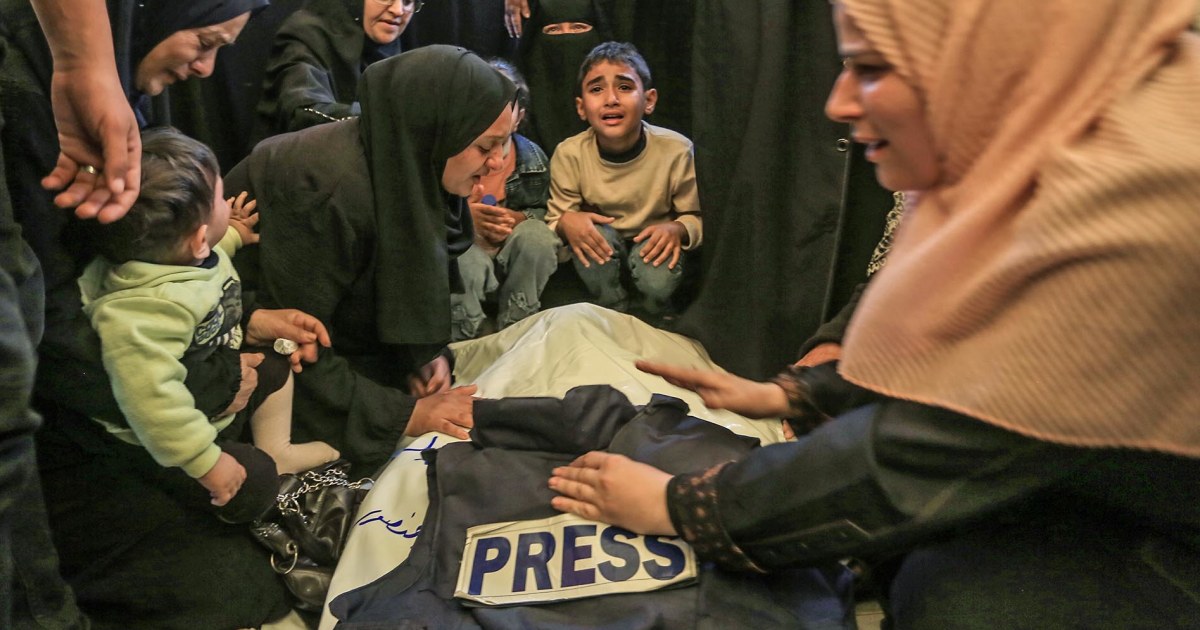Rising Toll: The Unfolding Tragedy of Journalists in Gaza
The Israel-Gaza conflict has become the deadliest war for journalists in modern history, with over 100 media workers killed since October 2023. As violence escalates, reporters in Gaza face unprecedented risks while documenting atrocities, raising urgent concerns about press freedom and international protections for journalists in conflict zones. The crisis underscores the growing dangers of war reporting in an era of asymmetric warfare.
Unprecedented Casualties in Conflict Reporting
According to the Committee to Protect Journalists (CPJ), more journalists have died in Gaza during the first four months of this conflict than in any single country over an entire year since records began. As of February 2024, at least 94 Palestinian journalists, 4 Israeli reporters, and 3 Lebanese media workers have been killed—many while wearing press insignia or working from clearly marked press buildings.
“This isn’t collateral damage—it’s a systematic erosion of the free press,” says Dr. Elena Michaels, a conflict journalism researcher at the International Press Institute. “When journalists become targets, the world loses its eyes and ears on the ground.”
Key statistics reveal the scale of the tragedy:
- Journalist fatalities represent 10% of all media deaths globally since 1992
- 72% of killed journalists were covering attacks on civilian areas
- Only 14% died in crossfire; the majority were hit by targeted strikes
The Perilous Reality of War Reporting in Gaza
Surviving journalists describe operating in a “double war zone”—navigating both military threats and a collapsing infrastructure. With Gaza’s internet connectivity at 12% of pre-war levels and hospitals overwhelmed, even basic first aid for wounded reporters is often unavailable.
Ahmed Al-Madhoun, a freelance photojournalist who lost three colleagues, explains: “We don’t have armored vests or trauma kits. When a missile hits, we run toward it knowing we might be next. But if we stop, the world won’t see the children pulled from rubble.”
International organizations report that:
- 8 press facilities have been destroyed by airstrikes
- Journalists average 2.3 hours of unreliable electricity daily
- 65% have lost family members while continuing to work
The Global Implications for Press Freedom
The Gaza crisis has ignited debates about journalist protections under international law. While the Geneva Conventions designate media as civilians, enforcement mechanisms remain weak. UNESCO reports a 400% increase in journalist killings in conflict zones since 2016, with near-total impunity for perpetrators.
Legal Protections vs. On-Ground Realities
Legal scholar David Richter notes: “Article 79 of Additional Protocol I to the Geneva Conventions clearly protects journalists, but compliance relies on political will. In Gaza, we’re seeing that framework collapse.”
Meanwhile, Israeli military spokespersons maintain they “never intentionally target journalists” and accuse Hamas of using media infrastructure for military purposes—a claim repeatedly contested by human rights organizations.
The Ripple Effects on Global Journalism
The Gaza tragedy has chilling implications beyond the region:
- Local news outlets in Gaza face extinction, with 80% of staff casualties
- International media increasingly rely on untrained stringers
- Young journalists reconsider entering conflict reporting
Paths Forward: Protecting the Fourth Estate
As funeral tents fill Gaza’s streets, media organizations and governments are scrambling for solutions. Proposed measures include:
- Emergency evacuation corridors for journalists
- Digital backup systems for documenting war crimes
- Strengthened UN monitoring of attacks on press
Press freedom advocate Maria Ressa warns: “When journalists die, truth dies with them. Gaza today could be anywhere tomorrow—we need global action before this becomes the new normal.”
How Readers Can Support Journalists in Crisis
The international community can:
- Pressure governments to uphold Geneva Convention obligations
- Support organizations like CPJ and Reporters Without Borders
- Amplify reporting from conflict zones through ethical sharing
As the Gaza conflict continues, one truth emerges clearly: the right to know depends on those willing to risk everything to report. Their safety can’t wait for ceasefire talks—it demands immediate, concerted action from the global community.
For verified information on journalist casualties, visit the Committee to Protect Journalists’ interactive database.
See more CNN Headline


